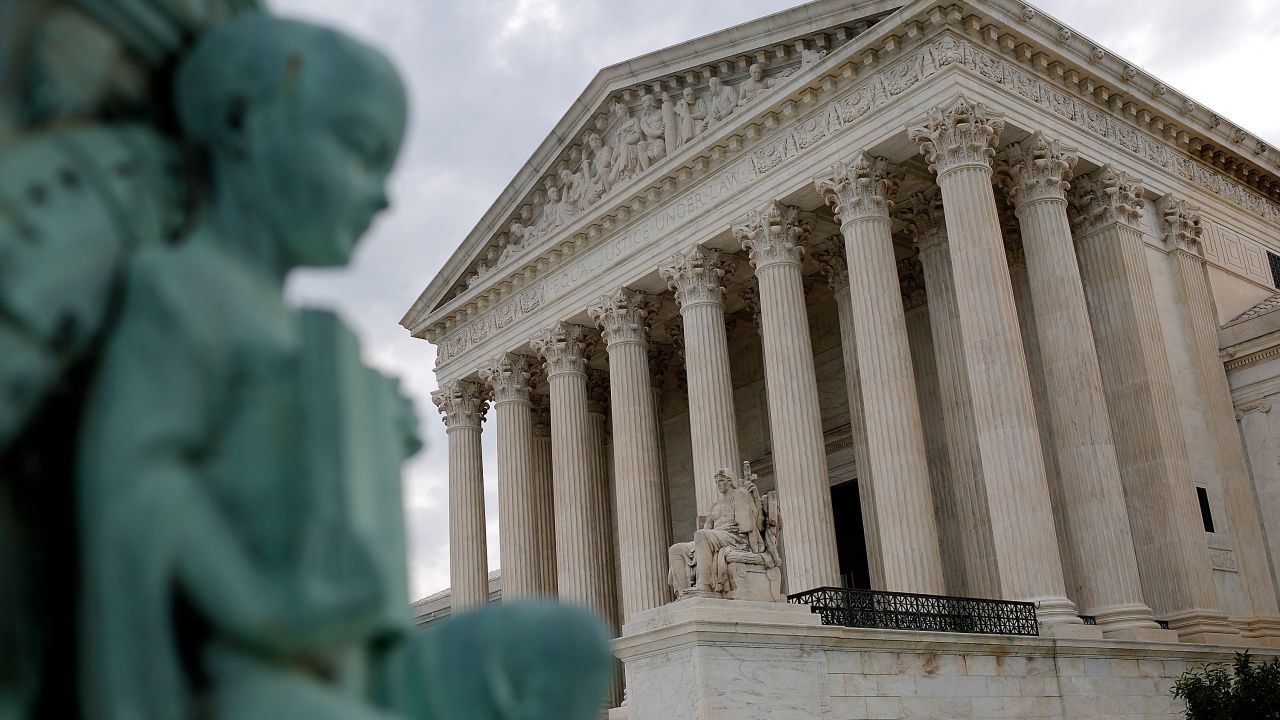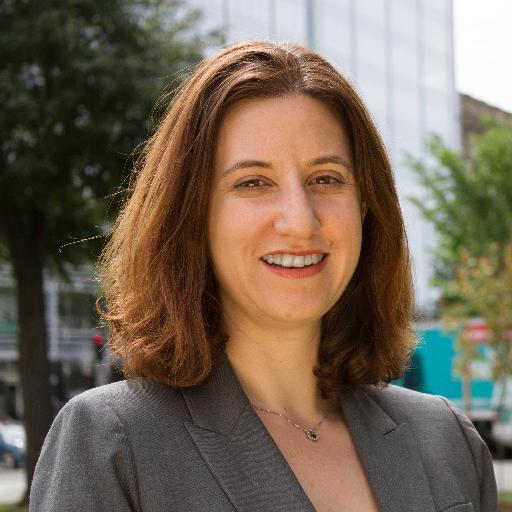
A new series of challenges to campaign-finance laws could reshape how money influences politics, either through contribution limits or limits on state-level elections. (Photo by Win McNamee/Getty Images)
This post originally appeared at The Center for Public Integrity.
Most Americans last heard from conservative lawyer James Bopp six years ago when he crafted a case, Citizens United v. Federal Election Commission, that won the Supreme Court’s favor and helped uncork a torrent of cash — some of it secret — that continues pouring into elections.
But Bopp is back. The Terre Haute, Indiana-based attorney, who was literally laughed at by a judge when he made his first arguments in Citizens United, is now the lead lawyer in the most prominent of a series of lawsuits attempting to further destroy political contribution limits. The case, brought by the Republican Party of Louisiana, addresses restrictions on how state and local political parties use “soft money” contributions to influence federal elections.
Bopp’s clients argue that if independent outside groups such as super PACs are permitted to raise and spend unlimited amounts of such money, there’s no reason why state political parties should be treated differently.
Bopp’s clients argue that if independent outside groups such as super PACs are permitted to raise and spend unlimited amounts of such money, there’s no reason why state political parties, acting independently of federal candidates, should be treated differently. Political parties are “disadvantaged” compared to super PACs, Bopp said in an interview with the Center for Public Integrity. “They want to compete, and they want to do this activity without the severe restrictions that they suffer under.”
Bopp says he won’t rest until there are as few election rules as possible since he believes that too many rules lead to more opportunities to game the political system. “When you say, ‘Congress shall make no law,’ I know that’s kind of a shocking statement, but it’s a pretty definitive statement,” he said, referring to the First Amendment and its application to political speech. “There shouldn’t be any laws as opposed to thousands of pages of laws and regulations that you have now in the federal system.”
The stakes are high. If the Republican Party of Louisiana wins the case, “in effect, the ‘soft money’ world of the late ‘90s and 2002 would be reestablished,” purging some of the last remnants of McCain-Feingold and other restraints on donations, said Richard Briffault, a professor at Columbia Law School and expert on election law.
Tara Malloy, deputy executive director of the Campaign Legal Center, which favors campaign contribution limits, compares the deregulatory approach of those like Bopp who are fighting against limits to peeling an onion.
“First it was the aggregate limits, which was sort of like the outermost protection. Now they’re going for the party limits, which again seems one degree removed from a direct contribution for the candidate,” she said. “I assume if they were successful here, they would go for the rest.”
Multiple campaign-finance lawyers point to the Louisiana case as one of the most likely of a small number of campaign finance cases now wending their way through the legal system to reach the US Supreme Court, and several others may land there as well.
These still-obscure challenges to remaining campaign-finance laws have the potential to again reshape the way money influences politics. They could further erode contribution limits or chip away at state laws aimed at restricting money’s influence on state-level elections.
These still-obscure challenges to remaining campaign-finance laws … could further erode contribution limits or chip away at state laws aimed at restricting money’s influence on state-level elections.
To be sure, there are many variables that will shape the outcomes. And lawyers on all sides of these cases agree US Supreme Court rulings are notoriously tricky to forecast, especially with the court down to eight members following the death of Justice Antonin Scalia earlier this year.
Nevertheless, those in favor of more deregulation of campaign finance, like Bopp, are looking to extend the reasoning laid out in decisions such as Citizens United and 2014’s McCutcheon v. FEC, which overturned aggregate campaign-finance limits.
The practical effect of the US Supreme Court siding with the Louisiana state Republican Party would be reopening the door to what was known in the 1990s as “soft money,” allowing what in many states would be practically unlimited contributions to state parties.
The case would “substantially” reduce the difference between the amounts of money independent groups such as super PACs could accept and the amounts state parties could accept, Bopp said.
Two other cases could also be big, if they don’t first fizzle out: a federal district-court ruling striking down Montana’s contribution limits, also a Bopp case, and a messy, politicized case out of Wisconsin that raises questions about coordination between candidates and independent groups, among other legal issues.
There’s also a case seeking to overturn a Delaware law that requires groups spending more than $500 per election cycle on ads referring to specific candidates to disclose their donors.
Parties in both the Wisconsin and Delaware cases have filed certiorari petitions asking the Supreme Court to take the cases. The Supreme Court has not yet ruled.
‘A time bomb’
The most prominent cases involve objections to contribution limits, and they seem to follow a trail laid down by Chief Justice John Roberts in the 2014 McCutcheon case when he appeared to invite, or at least open the door to, additional challenges to contribution limits. Bopp and his ideological allies are taking Roberts’ hint, argues Rick Hasen, a law and political-science professor at the University of California, Irvine, who has written about both Roberts’ wording and the Louisiana Republican Party case.
McCutcheon was, in some ways, a narrow case concerning only the so-called aggregate contribution limits, the total amount contributors can give to all federal candidates in a single election cycle.
The law previously capped the total amount an individual could donate to federal candidates at $48,600 per election cycle plus $74,600 to parties and political-action committees. A contributor who wanted to give the maximum contribution — then $2,600 — to a large number of federal candidates, such that his total giving would exceed the cap, filed suit.
The US Supreme Court, in a 5-4 decision, struck down the aggregate limit, although it left limits on contributions to individual candidates and to parties in place.
But in McCutcheon, Roberts reinforced a limited definition of political corruption, defining it very much like bribery. To prove corruption, one must essential prove a quid pro quo — that money led to some specific act of corruption. The tight definition of corruption is important, because preventing corruption — or the appearance of corruption — is the only legitimate reason the court has said justifies contribution limits.
If the justification underpinning campaign contribution limits rests on broader definitions of corruption — for instance, limiting the access to politicians that can accrue to big contributors — Roberts seemingly opened the door to striking down the limits as unjustified restrictions.
“It’s been kind of a time bomb,” Hasen says of the language in the McCutcheon opinion.
Bopp hopes to see the bomb detonate, describing more campaign-finance deregulation as “definitely desirable.”
Soft money 2.0?
All this goes back to the big debate over “soft money” that has raged for decades. “Soft money” was the term given to unlimited contributions made by corporations, individuals and labor unions to national political parties. The funds were often used to pay for “issue” ads — commercials that avoided directly calling for the election or defeat of a particular candidate but otherwise looked and sounded very much like campaign ads.
The Bipartisan Campaign Reform Act of 2002, often referred to as McCain-Feingold, after its chief Senate sponsors banned soft money in federal elections, eliminating unrestricted contributions to national political parties and restricting state parties to funding what the law termed “federal-election activities” with federal funds, or funds raised subject to specific sets of restrictions and requirements.
The latter restrictions on state and local parties are the ones the Louisiana Republican Party’s lawsuit seeks to knock down.
“Some would argue that in the end, the money is going to get there one way or the other and the fact that the money is in parties is no worse and potentially better,” said Columbia Law School’s Briffault. “On the other hand, it’s one more reaffirmation of the idea that nominal independence means freedom from restriction.”
Thanks to judicial review provisions in the law that set the contribution limits, Bopp was able to request a hearing before a three-judge panel in federal district court. The panel’s decision can be appealed directly to the US Supreme Court.
Some campaign finance experts suggest Scalia’s death worsened odds that the Republican Party of Louisiana will win its case after the three-judge panel rules and the inevitable appeal is filed.
Some campaign finance experts suggest Scalia’s death worsened odds that the Republican Party of Louisiana will win its case after the three-judge panel rules and the inevitable appeal is filed. The high court may be more likely to simply uphold the lower court, for example. Or, there may be a greater likelihood of a tied verdict given the even number of justices.
Bopp who has long been active in the Republican Party, strongly contests the likelihood of a stalemate on the US Supreme Court, arguing precedent is on his side.
“Unless you’re prepared to say … ‘parties can’t do independent spending,’ then the logic is irresistible,” he said, adding that “political parties are highly regulated, more regulated than many of the other political actors in the process and frankly that, in my view, has the world upside down.”
Another campaign contribution case of Bopp’s, a long-running challenge to Montana’s limits on contributions to state candidates by a group of political parties and individuals, has also received a rush of attention.
Bopp says that case, as well as other challenges to contribution limits he is working on, have to do with applying the corruption definition in McCutcheonto campaign contribution limits.
A federal district court struck down Montana’s limits as too low to allow candidates to conduct effective political campaigns. An appeals court overturned the decision and sent the case back, ordering the court to reassess it.
The district court again struck down the contribution limits, more broadly finding the limits weren’t justified because the state failed to present compelling evidence of quid pro quo corruption, required to justify the limits. The case is again under appeal, and experts say it could eventually reach the US Supreme Court.
What started off as a case about whether contribution limits were too low “suddenly became about the constitutionality of contribution limits altogether, or what kind of incredibly strong legislative record you would need in order to have any kind of contribution limits,” said the Campaign Legal Center’s Malloy, whose organization has taken part in the case as a “friend of the court.”
Trump, Clinton could play roles
When asked by the Center for Public Integrity, campaign-finance lawyers were more tentative when naming other cases that could bring sweeping change, and forecasting which cases have the potential to reach the US Supreme Court and upend existing law is a dicey game.
The US Supreme Court has yet to rule on two certiorari petitions asking it to hear a pair of closely watched cases.
One, Delaware Strong Families v. Denn, involves a Delaware law that requires groups to reveal their donors’ identities if they spend $500 or more in a single election cycle on advertising that refers to specific candidates. The disclosure requirements apply even if the ads don’t explicitly urge people to vote for or against a specific candidate.
Delaware Strong Families, a nonprofit organized under Section 501(c)(3) of the tax code as a charity, describes its mission as “to rebuild a culture of marriage, family and freedom and raise up the next generation of leaders.” Charities cannot engage in activity aimed at influencing elections. The group publishes what it describes as a nonpartisan voter guide, and argues that the law is an unfair burden and could chill free speech.
In support of the law, the state argued it has a compelling interest in ensuring there is an informed electorate. Since Delaware is small, the state also contends it’s reasonable for a low-dollar threshold to trigger disclosure requirements.
The state won in the Third Circuit last year. The Center for Competitive Politics, which is representing Delaware Strong Families, has appealed to the US Supreme Court, which has yet to say whether it will agree to hear the case.
“The Delaware law is pretty radical, and I think if the court accepted it, I think we’d win. I think we’d see a lot of support across the ideological spectrum for limiting the reach or striking down the Delaware law,” predicted David Keating, the president of the Center for Competitive Politics, which favors less regulation of campaign finance. “Good grief, they’re regulating nonpartisan voter guides.”
But Malloy, whose organization is representing Delaware in defense of the law, said overturning the law “would act sort of as a check against state innovation in the disclosure area, where states are sort of leading the charge because Congress has been … in a quagmire.”
Another potential game changer is the so-called “John Doe” case out of Wisconsin, over which the US Supreme Court also has yet to act.
The politically charged case is an appeal of the Wisconsin Supreme Court’s ruling ending an investigation into whether Republican Gov. Scott Walker coordinated with independent outside groups working to support him during his recall election in 2011 and 2012.
Prosecutors are appealing the Wisconsin Supreme Court’s decision, arguing it essentially guts limits on Wisconsin candidates coordinating with outside groups and goes beyond what the US Supreme Court has so far permitted. Prosecutors also argue that three of the judges should have recused themselves because some of the independent groups involved in the investigation had supported their candidacies.
If the US Supreme Court accepts the case, it could be a vehicle for justices to clarify the murky legal area of coordination between candidates and independent groups. It may also address whether the judges should have recused themselves.
“Obviously, if the court granted [certiorari] on that, that would immediately become a blockbuster,” said Daniel Weiner, a senior counsel at the Brennan Center for Justice, which advocates for campaign finance reform, though he and other lawyers hastened to say they believe the US Supreme Court is unlikely to grant review.
“If the court were to adopt the interpretation of the Wisconsin Supreme Court, that would be the end of coordination law,” leaving only easily evaded restrictions on coordinating on communications that expressly urge voting for or against a candidate and nothing else, Weiner said.
Bopp, unsurprisingly, disagrees. He calls the Wisconsin Supreme Court’s decision well-founded.
“You’ve got to limit the idea of contribution to a candidate by coordinated spending to something that actually relates to an election, and issue advocacy isn’t it,” he said.
Everything comes down to which cases the US Supreme Court chooses to accept, and how broadly they choose to rule — choices surrounded by uncertainty. It may seem obvious, but a lot also depends on when a new justice is appointed to fill the seat left vacant by Scalia’s death — and the president, be it Barack Obama, Donald Trump or Hillary Clinton, whose nominee is confirmed.
Bopp crafts his cases — such as the Louisiana case — to go the distance, with an eye to, in his words, having “a very plausible way to win the case which fits under existing law.”
Don’t underestimate him. Citizens United was given such low odds of success, a district court judge laughed openly in court when Bopp made his argument that an anti-Hillary Clinton video was really just like a 60 Minutes segment and should be treated as such.
But he got the last laugh — and may again.
This story was co-published with POLITICO Magazine.




